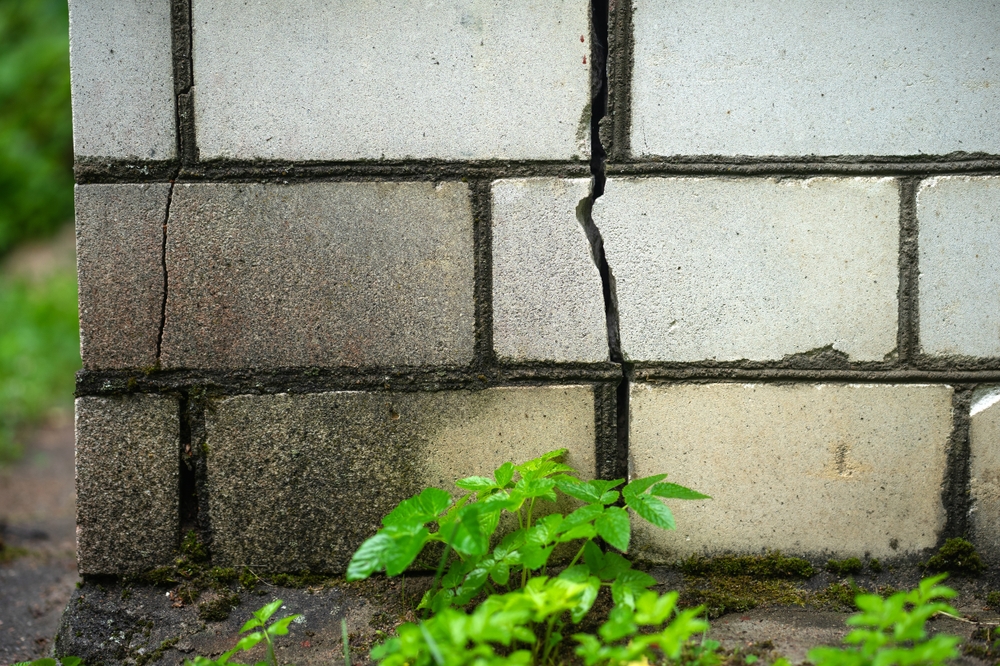
Top Signs Your Racine Home Needs Foundation Repair
Your home’s foundation is quite literally the base upon which everything else rests. It provides the structural support necessary to keep your home safe, level, and long-lasting. In Racine, where the climate brings cold winters, humid summers, and heavy precipitation, these weather extremes can take a toll on the ground beneath your home. Over time, this can lead to subtle and not-so-subtle signs of foundation problems. Knowing how to identify early warning signs of foundation issues can save you thousands of dollars in repairs and prevent severe structural damage. This blog outlines the most common indicators that your Racine home might be due for a foundation inspection and potential repair.
Cracks in Walls, Floors, or Ceilings
One of the most noticeable and alarming signs of foundation trouble is the appearance of cracks. While small, hairline cracks in drywall or plaster can be normal as homes settle over time, larger or jagged cracks may signal a deeper problem. Horizontal cracks or those wider than 1/4 inch should raise red flags. In particular, if you notice these cracks appearing suddenly or spreading, it may indicate that the foundation is shifting or sinking.
Cracks in the basement walls, especially those in a stair-step pattern along brick or concrete block, are a strong indicator of foundation settlement or movement. Similarly, cracks in concrete slab flooring, especially if they are uneven or accompanied by heaving, should not be ignored. These types of structural breaks often stem from the foundation’s inability to evenly bear the home’s load due to compromised soil or moisture changes beneath the surface.
Racine’s freeze-thaw cycles exacerbate this problem, as expanding ice puts pressure on foundation materials, potentially creating or widening existing cracks. If your home has a crawl space, look for cracks or warping in the piers and beams as well. All these signs suggest that your home’s foundation is under stress and may be failing in places.
Doors and Windows That Stick or Won’t Close Properly
When doors and windows start to behave strangely—refusing to open or close smoothly, sticking at the corners, or refusing to latch properly—it may not be your hardware that’s at fault. These issues often originate from a shifting foundation that has caused the frame of the home to distort ever so slightly. As the structure moves, even minute changes in angle or support can create enough misalignment to affect the operation of doors and windows.
In Racine homes, especially older ones with wood frames, this is a common symptom of foundation issues. Seasonal changes in humidity and moisture levels cause the underlying soil to expand and contract, placing stress on the foundation and, consequently, on the framing of the home. When this occurs, you might also notice gaps around windows and doors, particularly at the top or bottom. These gaps are more than just unsightly—they can also compromise insulation, lead to energy loss, and permit moisture intrusion.
If you begin to notice that multiple doors in your home are sticking or dragging along the floor, or that windows won’t close completely, this may indicate that your foundation has shifted unevenly. While the occasional sticky door can happen in any home, a recurring or widespread problem likely points to a foundational concern that should be evaluated by a professional.
Uneven or Sloping Floors
One of the more physically noticeable signs of foundation issues is when floors begin to slope or feel uneven. In some cases, you may not even need a level to detect the problem—a rolling object like a marble or ball can sometimes reveal subtle tilts in the floor. In more advanced cases, you might actually feel as if you’re walking uphill or downhill inside your own home.
Sloping or sagging floors are typically caused by one of two issues: either the foundation itself is settling unevenly, or the support structure beneath the floor (such as joists or beams) has weakened due to moisture or shifting soil. In Racine, where lake-effect weather and high water tables are common, both of these causes can be particularly relevant. Moisture intrusion can weaken wooden support structures over time, while expanding and contracting clay soils can lead to an unstable foundation base.
Even if the slope is not immediately dangerous, uneven floors signal a breakdown in the structural integrity of your home. Over time, this can lead to cracked tiles, warped floorboards, or broken linoleum. More importantly, if left unaddressed, the underlying foundation problem can worsen, leading to higher repair costs and more complex solutions. If you notice even a slight but persistent tilt in your floors, it’s wise to have a foundation expert assess the situation before it escalates.
Gaps Between Walls, Ceilings, or Cabinets
Another subtle yet telling sign of foundation trouble is the appearance of gaps where there shouldn’t be any. These often occur between walls and ceilings, around crown molding, or between countertops and the wall. Similarly, built-in cabinets and shelving may begin to pull away from the wall or appear crooked. These separations are caused by shifts in the home’s structural alignment due to foundation movement.
In Racine, seasonal ground movement caused by rainfall, snowmelt, and freezing temperatures can create significant soil instability. This instability results in parts of the foundation sinking or shifting at different rates, known as differential settlement. As the foundation moves, so too do the walls and other attached surfaces, creating visible gaps.
Homeowners may notice caulking tearing away or baseboards detaching in areas where these gaps are forming. While it may be tempting to simply patch or caulk the gaps, this cosmetic fix won’t solve the root of the problem. Instead, it serves as a warning sign that the building is not settling evenly and that foundational work may be necessary to prevent further damage.
These gaps can also affect the plumbing and electrical systems if the shifting structure causes pipes or conduits to stretch, crack, or detach. What starts as a small visual imperfection can quickly evolve into a more serious infrastructure problem, especially in older homes where materials are less resilient to repeated stress.
Water Intrusion and Moisture Problems in the Basement
Moisture is both a symptom and a cause of many foundation problems. In Racine, the proximity to Lake Michigan and the area’s frequent precipitation make water intrusion an especially common concern. If your basement feels damp, smells musty, or shows signs of mold or mildew, it’s possible that foundation cracks or poor drainage are to blame.
Water finds its way through the path of least resistance, and if your foundation has begun to crack or sink, these entry points become more numerous and accessible. Leaking basements are not only a nuisance—they can signal that hydrostatic pressure is building up around the home’s foundation. This pressure can push against the walls, weakening them or even causing bowing or buckling over time.
Pooling water near the base of your home is another indicator that drainage systems are failing, possibly due to uneven settlement or clogged footing drains. This standing water can erode soil and exacerbate foundation instability. Likewise, the freeze-thaw cycle can compound this damage by expanding water that’s already found its way into small cracks, making them larger and more severe.
To prevent further complications, homeowners should take moisture problems seriously. A waterproofing solution may offer temporary relief, but a long-term fix will often involve addressing the foundational issues that allowed the moisture to enter in the first place.
Taking Action Before It’s Too Late
Foundation problems rarely resolve on their own. Left unchecked, they tend to worsen over time, increasing the scope and cost of the necessary repairs. That’s why recognizing the early signs—whether it’s cracks in walls, sticking doors, sloping floors, visible gaps, or basement moisture—is so vital to maintaining your Racine home’s safety and value.
Prompt action can mean the difference between a manageable repair and a complete structural overhaul. If you suspect foundation issues, it’s essential to consult with a licensed structural engineer or a reputable foundation repair contractor who is familiar with Racine’s unique soil and weather conditions. A professional assessment will provide clarity and peace of mind, ensuring that your home remains safe for years to come.
Taking proactive steps today will not only protect your investment but also maintain the comfort and livability of your home. A solid foundation supports everything—literally and figuratively—and recognizing the signs of trouble is the first step in preserving it.
Need a Masonry & Concrete Contractor Near You?
Welcome to Langenfeld Masonry & Concrete! Family owned and operated, Langenfeld Masonry & Concrete has been servicing Racing, Kenosha, and South Milwaukee counties since 1912. Our years of experience in the industry have built us a reputation within the community as the premier masonry and concrete contractors in the area. At Langenfeld Masonry & Concrete, we specialize in driveways, patios, sidewalks, and concrete repair. In addition, we also offer basement waterproofing, foundation pouring, repair, and more. For five strong generations, we have been dedicated to being the best at what we do, and it shows. Come see what sets us apart from the competition and why we have truly passed the test of time. Call us today for your free estimate.
More...
Categorised in: Foundation Repair




